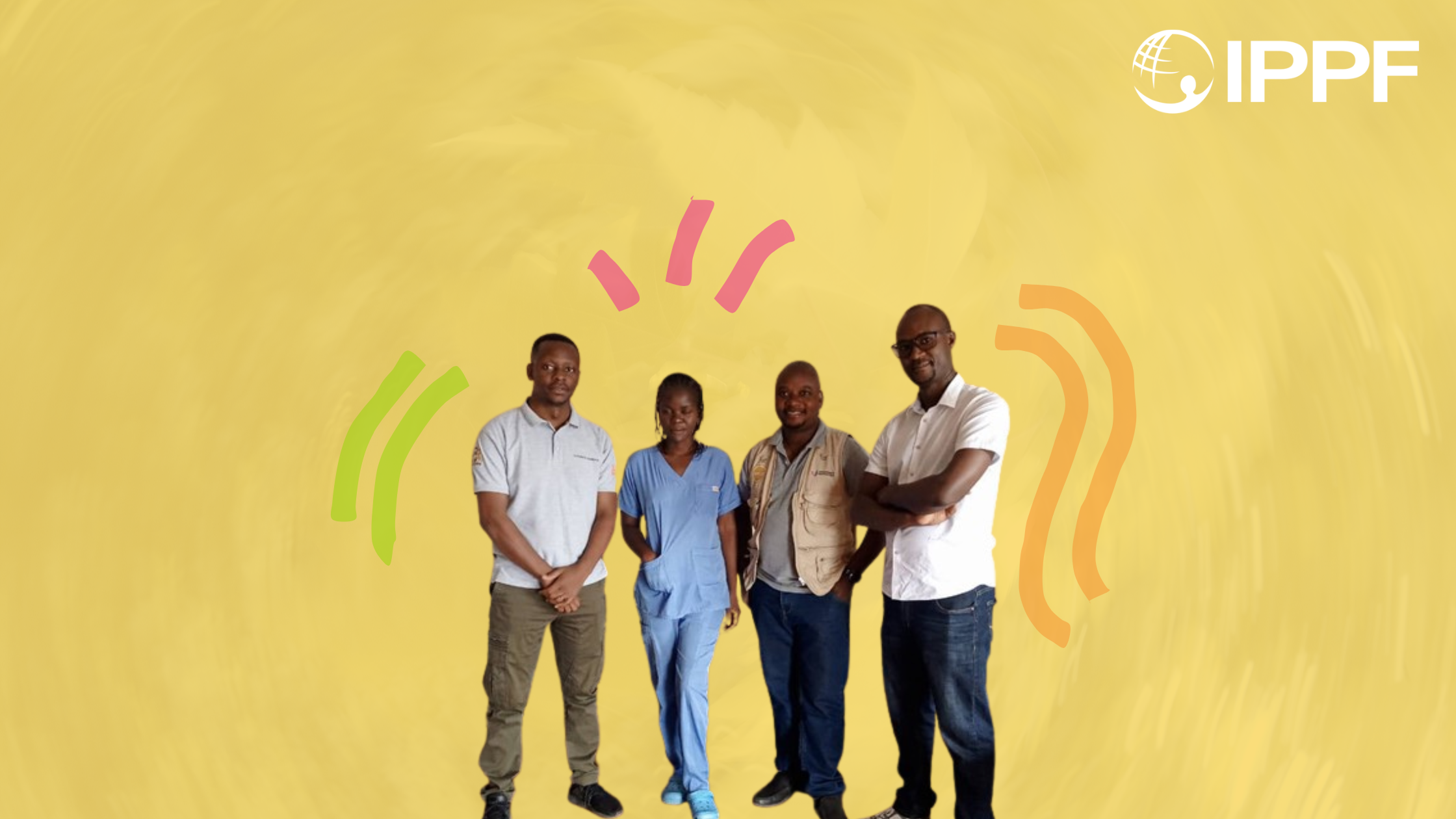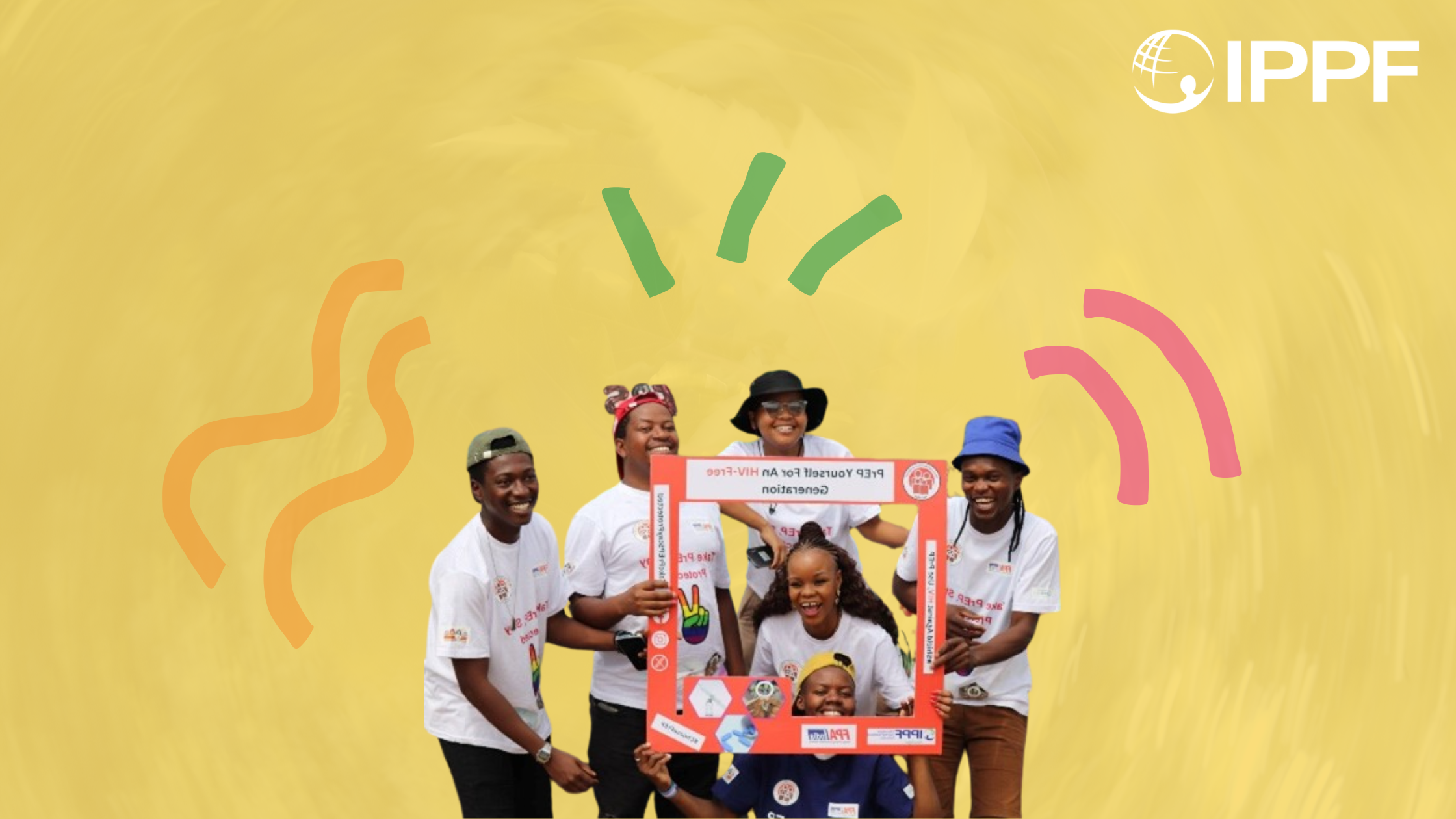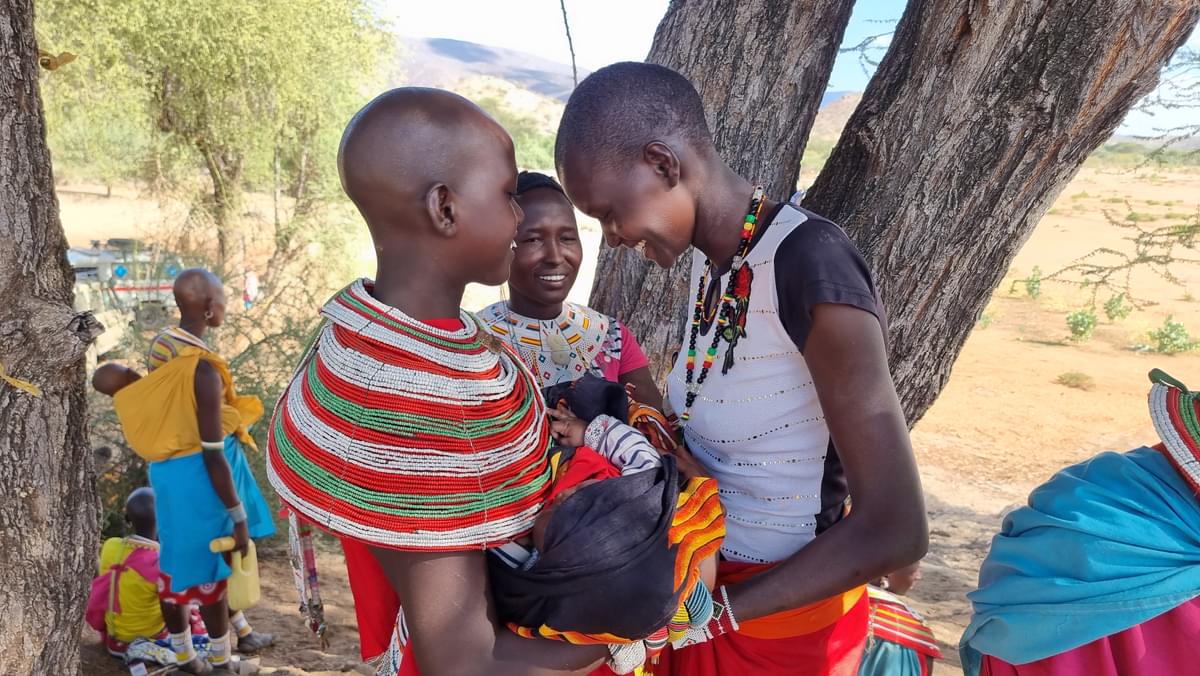Eswatini (27 August 2024) - IPPF’s Member Association in Eswatini, the Family Life Association of Eswatini (FLAS), is soon to roll out the first women-controlled HIV prevention product, the dapivirine vaginal ring (DVR). FLAS will be among the first organisations to offer the DVR outside implementation or pilot studies anywhere in the world. Made of flexible silicone, the ring is inserted into the vagina by a woman and slowly releases the antiretroviral drug dapivirine in the vagina over a one-month period, helping to reduce a woman’s risk of acquiring HIV.
In 2023, in sub-Saharan Africa, women and girls accounted for 62% of all new HIV infections and every week, 3,100 adolescent girls and young women aged 15–24 years became infected with HIV. Therefore, there continues to be an urgent need for HIV prevention methods that females can use to protect themselves.
The DVR is a product women can control themselves and use without the knowledge or consent of their partners, unlike condoms, which men often refuse to use. The DVR is inserted into the vagina and left for a one-month period, where it can then be replaced each month for continued protection. Unlike daily oral PrEP, the DVR does not rely on remembering to take a pill each day and is also discreet as it stays inside the vagina throughout the month.
The DVR does not prevent pregnancy or other sexually transmitted infections (STIs), so women choosing to use the ring may want to consider combining it with condoms and methods of contraception.
The availability of the DVR is an exciting step in supporting women’s autonomy and choice in HIV prevention. This need for women-controlled HIV prevention products has long been advocated for, with the African Women Prevention Community Accountability Board launching the HIV Prevention Choice Manifesto in early 2023. The Choice Manifesto prioritises the principle of choice to ensure that women and girls have the right to choose which HIV prevention methods work for them.
Currently the ring is available at selected facilities through implementation studies across six countries in East and Southern Africa; South Africa, Kenya, Zimbabwe, Lesotho, Eswatini, and Uganda.
Diantha Pillay, Associate Director for Product Access for IPM South Africa NPC (an affiliate of the Population Council), said:
“It is encouraging to see the efforts made by FLAS and IPPF to support the choice agenda for HIV prevention for women and make effective HIV prevention methods, like the DVR, more widely accessible in a real-world setting. We hope this can pave the way for introduction of future pipeline products that speak to the needs of women.”
The Population Council is currently developing a longer duration DVR that women would use for three months versus one month to significantly lower annual product costs and offer women a more convenient option to protect themselves.
Thabo Lizwe Masuku, Programs Manager for FLAS, said:
“Women have been telling us for a long time that there is a need for a variety of methods for HIV prevention, since they are highly exposed. For women and girls to truly have choice about what works for them as they navigate different stages and circumstances of their lives, policy makers, donors, governments and implementers must ensure the mix of HIV prevention methods are available, accessible, and affordable. Access to the ring through our clinics in Eswatini now gives women choice and options to protect themselves against HIV.”
IPPF is committed to ensuring that choice in HIV prevention is a reality for women and girls and aims to roll out the dapivirine vaginal rings at as many Member Associations as possible, as well as offer other HIV-prevention choices, as we work alongside our partners towards a future free of HIV in Africa and beyond.
For more information and to speak to staff in Eswatini, please email media@ippf.org
Notes:
The dapivirine vaginal ring has been recommended by the WHO since January 2021. (25) In clinical trials, the ring was shown to reduce HIV infection by 35% in The Ring Study (26,27) and 27% in the ASPIRE Study. (28,29) Recent open-label studies show greater adherence to the ring, and modelling data suggest that HIV risk could be reduced by about 50%. (30) The dapivirine ring has received regulatory approval from the European Medicines Agency (EMA), as well as from local medicines regulators in Namibia, South Africa, Kenya, Zimbabwe, Uganda, Zambia, Malawi, Rwanda, Eswatini, Lesotho, Botswana and is currently under regulatory review in a number of other countries
Our Member Associations (MAs) that provide clinical services are required to provide comprehensive SRH services through our Integrated Package of Essential Services (IPES) which include services for sexual health and well-being, contraception, abortion care, sexually transmitted infections (STIs)/reproductive tract infections (RTIs), HIV, obstetrics and gynaecology, fertility support, and sexual and gender-based violence.
IPPF’s new five-year strategy, Come Together, focuses on expanding choice. In support of this, we recently launched a special programme to expand our HIV prevention options, which aims to integrate the newest HIV prevention methods – the vaginal ring and injectable PrEP - into our comprehensive sexual and reproductive health services.
IPPF’s IMAP Statement on Biomedical HIV Prevention can be found here.
About the Family Life Association of Eswatini (FLAS)
For over 30 years, the Family Life Association of Eswatini (FLAS) has provided sexual and reproductive health (SRH) services to the people of Eswatini (formally Swaziland).
While family planning, antenatal, post-natal and post-abortion care form a key part of FLAS services, there’s a significant focus on HIV and AIDS programmes. Eswatini has some of the highest HIV and AIDS prevalence rates in the world. As a result, the prevention and management of HIV and AIDS, the provision of voluntary counselling and testing (VCT), and the prevention of mother to child transmission (PMTCT) are central to FLAS’s work.
FLAS has 15 service points, including three permanent clinics and three mobile facilities, staffed by a permanent team of 40 staff backed by 230 volunteers, 180 Youth Action Movement members and 29 peer educators.
About the International Planned Parenthood Federation (IPPF)
IPPF is a global healthcare provider and a leading advocate of sexual and reproductive health and rights (SRHR) for all. Led by a courageous and determined group of women, IPPF was founded in 1952 at the Third International Planned Parenthood Conference. Today, we are a movement of 150 Member Associations and Collaborative Partners with a presence in over 146 countries.Our work is wide-ranging, including comprehensive sex education, provision of contraceptives, safe abortion, and maternal care and responding to humanitarian crises. We pride ourselves on being local through our members and global through our network. At the heart of our mission is the provision of – and advocacy in support of – integrated healthcare to anyone who needs it regardless of race, gender, sex, income, and crucially no matter how remote.
Our services are available to all, and reach the most marginalised groups in societies, including key and priority populations, youth, and people with disabilities. Most of our MAs have special programs to engage youth (10-24) inside and outside of school settings. Because our clinics offer comprehensive services, attending our clinics is non-stigmatizing and does not label people as having a particular disease or membership to a particular group. This model of services that are integrated and open to all, embedded in indigenous, locally owned organisations, is ideal for ensuring that the most vulnerable and marginalised groups can access the HIV prevention services they need.
About the Population Council
The Population Council is a leading research organization dedicated to building an equitable and sustainable world that enhances the health and well-being of current and future generations. The Council transforms global thinking on critical health and development issues through social science, public health, and biomedical research. We generate ideas, produce evidence, and design solutions to improve the lives of underserved populations around the world.
















